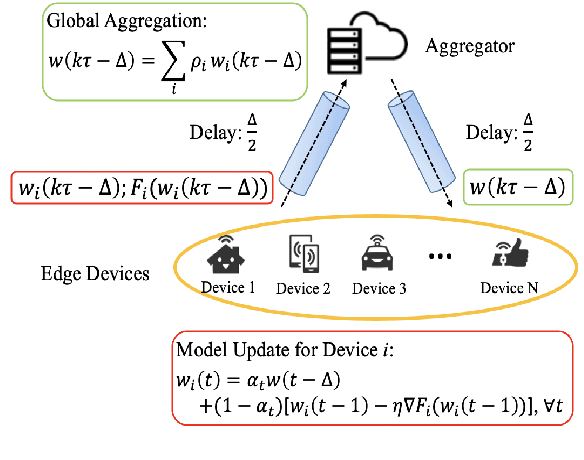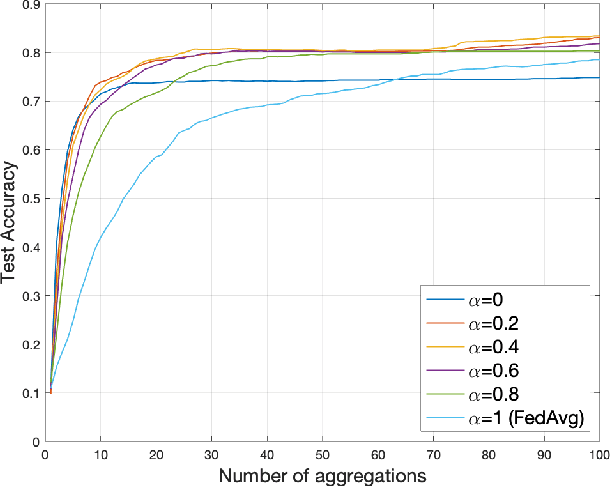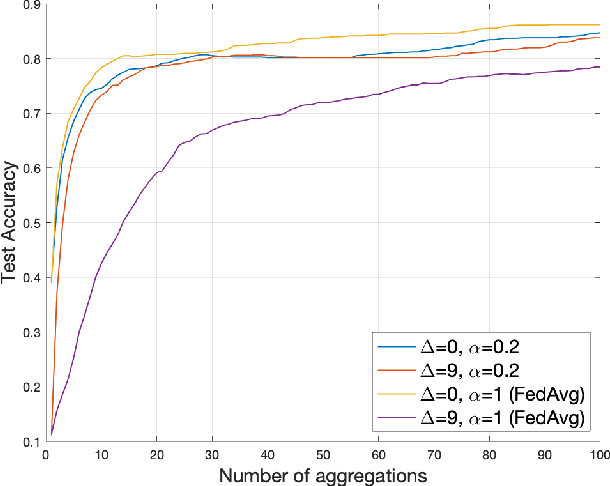Federated Learning with Communication Delay in Edge Networks
Paper and Code
Aug 21, 2020


Federated learning has received significant attention as a potential solution for distributing machine learning (ML) model training through edge networks. This work addresses an important consideration of federated learning at the network edge: communication delays between the edge nodes and the aggregator. A technique called FedDelAvg (federated delayed averaging) is developed, which generalizes the standard federated averaging algorithm to incorporate a weighting between the current local model and the delayed global model received at each device during the synchronization step. Through theoretical analysis, an upper bound is derived on the global model loss achieved by FedDelAvg, which reveals a strong dependency of learning performance on the values of the weighting and learning rate. Experimental results on a popular ML task indicate significant improvements in terms of convergence speed when optimizing the weighting scheme to account for delays.
 Add to Chrome
Add to Chrome Add to Firefox
Add to Firefox Add to Edge
Add to Edge